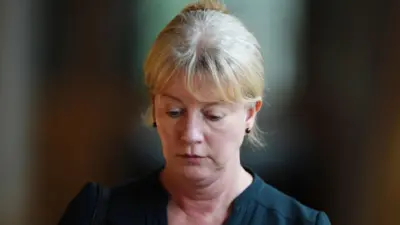We've updated our Privacy and Cookies Policy
We've made some important changes to our Privacy and Cookies Policy and we want you to know what this means for you and your data.
High phosphate levels in River Camel monitored
- Natural England warns Cornwall Council that the River Camel has high phosphate readings
- The readings have put all planning and development proposals in the area on hold
- Agriculture,┬Āsewage from homes and other developments that generate┬Āwaste water are believed to be responsible
- The council said it was working with official agencies to find a long-term solution "as quickly as possible"
Phosphate levels in a river in Cornwall are being monitored after recent high readings, Cornwall Council says.
The authority said it was using a chemical calculator to measure and monitor levels in the River Camel after an alert by Natural England.
The move has resulted in all planning and development proposals in the area being put on hold, the council said.┬Ā
The main source┬Āof phosphates┬Āwas┬Āagriculture,┬Āwith some coming┬Āvia┬Āsewage from homes and other developments that generated┬Āwaste water, it added.┬Ā
The River Camel is part of a Special Area of Conservation.
High levels of phosphates in land can encourage weeds and choke rivers.
Phosphate neutrality
The council said it was notified by Natural England "that┬Āthe area┬Āwas at risk from adverse effects┬Ādue to┬Āexcessive phosphates┬Āand that further development could┬Āexacerbate this┬Āunless mitigation measures┬Āwere put in place".
It said the pause in planning work in the area had primarily impacted housing applications.
But some commercial and agricultural development had also been impacted, and it "could also affect other schemes", the authority addedŌĆ».
It said it had introduced to allow planning applicants to calculate whether their development would be┬Āphosphate-neutral as a "first step" in keeping levels under control.
But it said: "Until┬Ālonger-term solutions are found, the council will only be able to approve applications that can show that they meet this [phosphate-neutral] requirement,┬Āor can┬Āpropose mitigation measures to the same effect."
The council said it was working with Natural England, the Environment Agency and┬ĀSouth West┬ĀWater "to find a solution as quickly as possible".
Top Stories
More to explore
Most read
Content is not available








